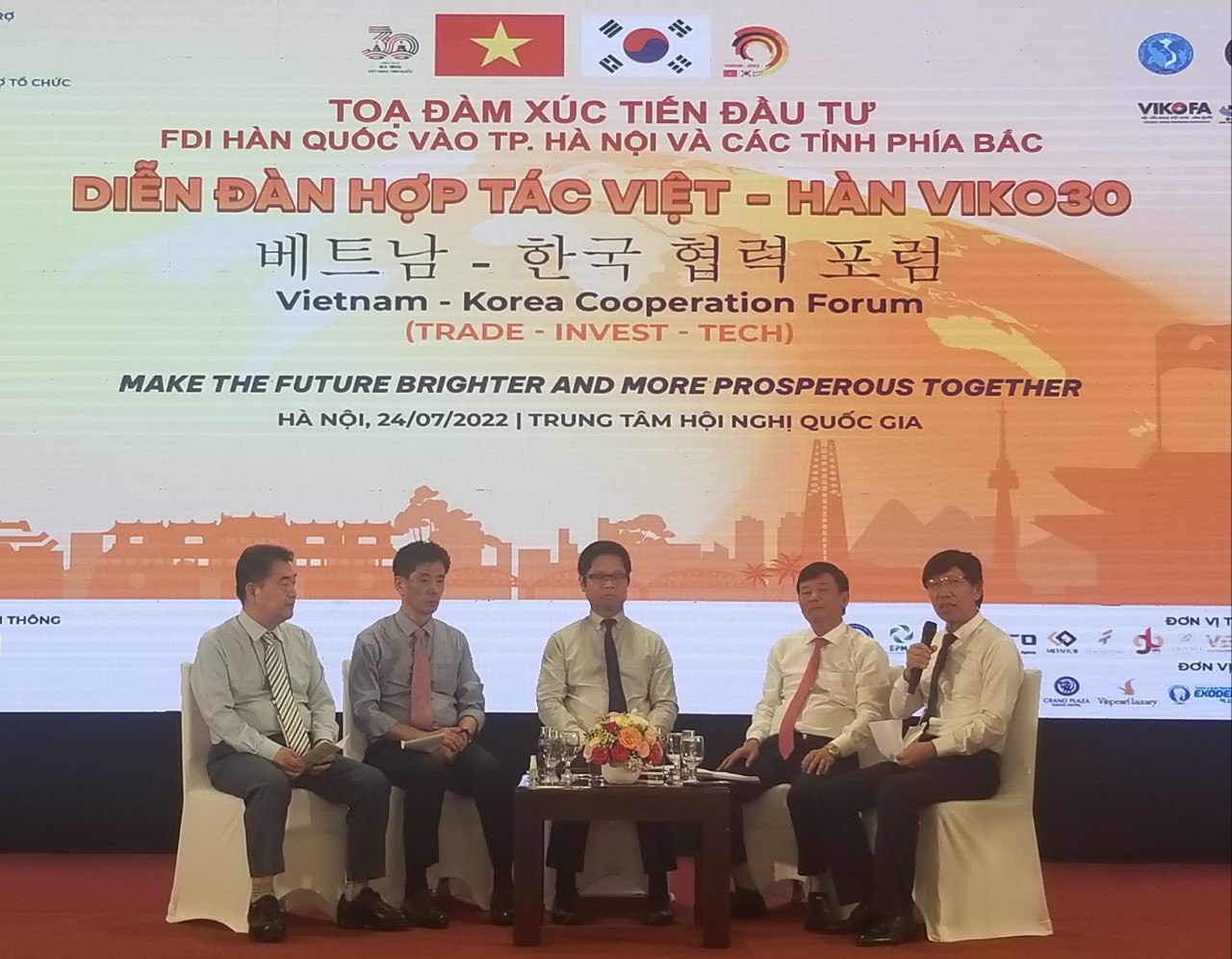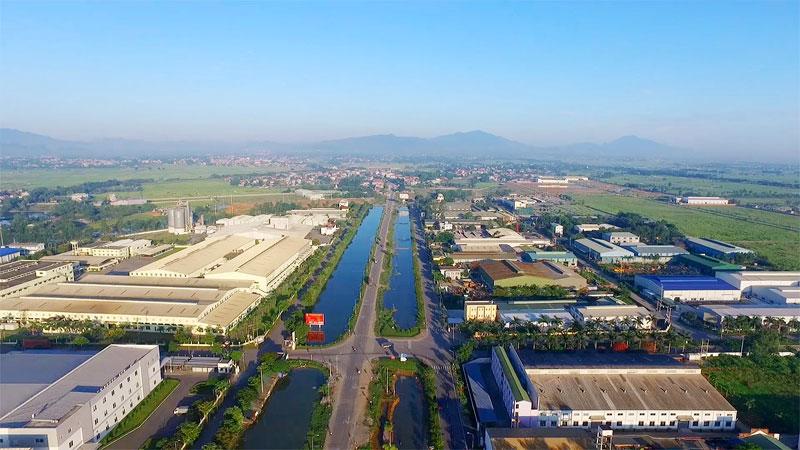Vietnam's northern region holds favorable conditions to attract S. Korea’s FDI
The high complementary nature of the two economies has laid the foundation for both to significantly boost economic, trade, and investment cooperation over the years.
Vietnam’s northern region with Hanoi as the center is holding favorable conditions to attract foreign investment, especially those from South Korea.
| Delegates at the conference. Photo: Nguyen Tung |
Chairman of the Vietnam International Arbitration Center (VIAC) Vu Tien Loc gave the remarks during the Vietnam-Korea Cooperation Forum held today [July 24], marking the 30th anniversary of bilateral relations (1992-2022).
Loc, who is also Chairman of the Vietnam-South Korea Friendship Organization, said the strong ties between Vietnam and South Korea come from similarities in history, culture, and people.
“The high complementary nature of the two economies has laid the foundation for both to significantly boost economic, trade, and investment cooperation over the years,” he added.
From a modest trade turnover of $500 million in 1992, the figure rose exponentially to $78 billion in 2021, making South Korea one of Vietnam’s top trading partners.
Vietnam and South Korea are eyeing $100-billion trade revenue by 2023 and $150 billion by 2030.
Meanwhile, South Korea remained Vietnam’s largest investor with accumulated registered capital of nearly $80 billion from major names such as Samsung, LG, Lotte, and Posco.
“Vietnam aims to become a developed country by 2045, and experience from South Korea would prove valuable for the country in this process, especially in fields that South Korea is taking a world’s pioneering role inclulding the digital economy, innovation, startups, supporting industries,” he added.
Sharing Loc’s view, Vietnamese Ambassador to South Korea Nguyen Phu Binh said after 30 years of diplomatic relations, the Vietnam-South Korea partnership has improved in all spheres, especially in trade and investment.
“Investment from South Korean investors have moved beyond major cities such as Hanoi, and Ho Chi Minh City, and spread out to other localities and also diverse economic sectors,” Binh added.
Vice Chairman of the Korea & Vietnam Economic and Cultural Association (KOVECA) Kwon Sung-Taek said trade and investment cooperation are significant achievements over the past 30 years of Vietnam-South Korea relations. He noted that Vietnam-South Korea trade turnover is equivalent to that of South Korea with the remaining nine members of ASEAN.
“South Korean companies are holding a share of 25% of Vietnam’s total exports,” he said.
Kwon expected South Korea’s investment strategy in Vietnam would continue to expand in the future which is tailor-made for the advantage of provinces/cities in Vietnam.
| Phu Nghia Industrial Park in Hanoi. Photo: Nguyen Duong |
Northern cities as safe haven for foreign investors
Loc from the VIAC suggested Vietnam has so far witnessed two investment waves, with the first taking place right after the Doi (Renewal) in 1986 and focusing on cities in the South.
“Such a move helped kickstart the development of Vietnam’s major economic hubs in the South, including Ho Chi Minh City, Binh Duong or Dong Nai,” Loc said.
“Vietnam is undergoing the second investment wave and the Northern region has now emerged as an appealing destination option,” he added.
Loc referred to the recent decision from the National Assembly that approved the US$3.7-billion Ring road No.4 project to bolster provincial linkage and significantly transform the capital area.
“This is a huge opportunity for domestic and foreign investors,” Loc said.
Meanwhile, impacts of current geopolitical tension, the Covid-19 pandemic, and climate change are leading to a shift in investment capital from China to Vietnam.
“Investors looking to exit China but still want to keep hold of their bases in one of the world’s largest markets, so the logical choice would be Vietnam’s northern provinces that are near China,” he said.
Another key advantage pointed out by Loc is the high dynamism and competitiveness of the local authorities, as cities such as Hanoi, Quang Ninh, and Bac Ninh are among the top business-friendly localities in Vietnam under the annual Provincial Competitiveness Index (PCI).
At the conference, Vice Chairman of the Bac Ninh Province People’s Committee Ngo Tan Phuong said the locality is home to 590 foreign projects with a combined investment capital of $14 billion. Among the lot, Samsung is the largest investor that has contributed a major part to the province’s export turnover of $45 billion and created millions of jobs for the locals.
“Authorities in Bac Ninh stay focused on addressing concerns of foreign businesses to ensure their long-term success here,” Phuong said.














